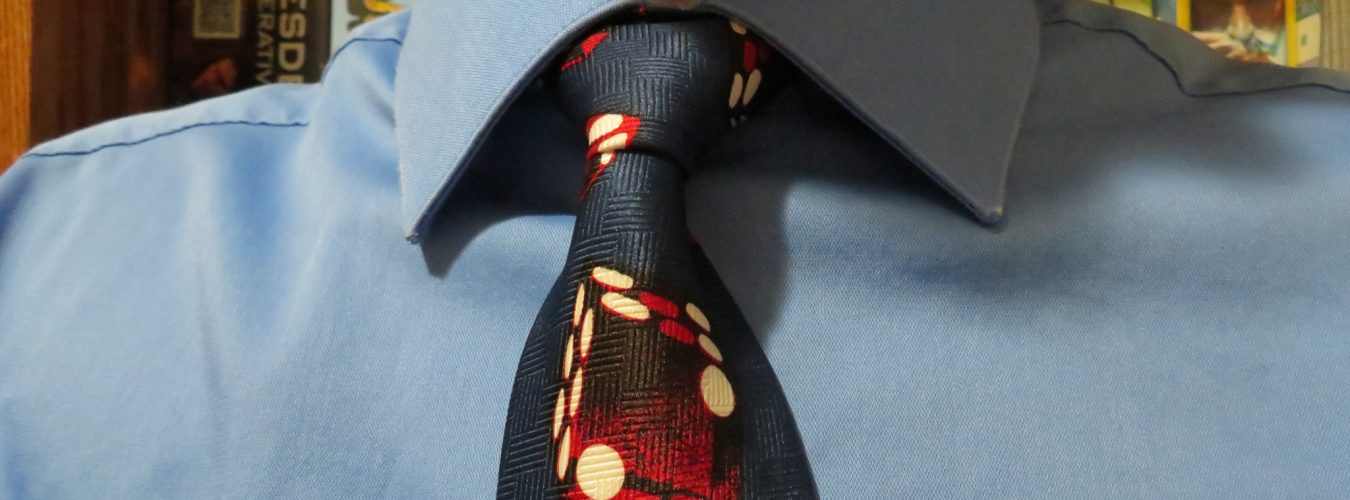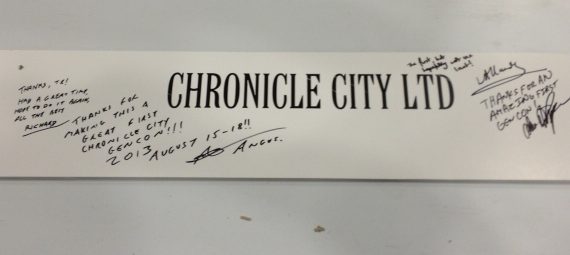Today, I am going to respond to an email request of “I’d love to know how you got contacts with different companies” by continuing my discussion of building relationships started in Beginnings – How do you become a “successful” freelancer?.
If initial Contacts are all you desire, those can be easily acquired through a search of a game publisher website or handing out business cards at conventions. Sometimes those initial contacts can grow into more, but often you are one of many such contacts that game publishers receive in a day. How do you make a memorable impression that can become a relationship with the game publisher? Maya Angelou states my recommendation more eloquently than I will be able to when she stated,
“I’ve learned that people will forget what you said, people will forget what you did, but people will never forget how you made them feel.”
Don’t take this the wrong way: an email introduction and online application, a quick introduction and business card given at a convention booth, or a conversation in passing after a game or workshop are all great potential starts. Many business relationships have begun over a well-timed quick conversation and handshake. But, how do you increase your chances of successfully gaining freelance work with a publisher? Like Maya Angelou states, “people will never forget how you made them feel.” You want the game publisher to remember you as someone they enjoy talking to, a supporter of their creative projects, and a professional they respect. When they feel positively about you, they are more likely to be interested in working with you.
From my personal journey, I recommend these steps for building a lasting relationship with a game publisher.
- Support
- Correspond
- Visit
- Volunteer
Support the publisher’s creative projects. Back their Kickstarter projects (even if just for a $1). Share about their projects on Twitter, Facebook, and other social media. Show them you are a team player and really do desire for them to succeed. After you become a freelancer, this is even more important, as you maintain and strengthen your relationship with the publisher. It was through a Kickstarter conversation that I got to know David Miller of subQuark. He and I now communicate weekly about potential game projects in development.
Correspond online with the publisher. Respond to their social media posts. Join in the discussion on their blog and/or forums. Your name should be associated with consistent interest in the publisher and his projects. I am not saying you always have to agree. Constructive comments for improving a project or respectfully disagreeing with a discussion topic show you have your own opinion as well and are not just saying what they want to hear. Publishers prefer honesty and might find you have good suggestions to make their projects even better. It was through correspondence online that I got to know Angus Abranson of Chronicle City, which led me to where I am today in the industry as a freelancer.
Visit face-to-face whenever you have the opportunity. Putting a face with a name strengthens a relationship, especially if it has only been a virtual one to this point. Stop by their booth at each convention or sponsored event you attend. Be consistent about visiting and talking about their current projects. If you have built the relationship already through Support and Correspondence, you could offer to purchase them a drink or buy them dinner to do some extended visiting. I have yet to find a publisher who will pass up a free drink or meal if you can find a time they are available. So many great projects and partnerships have been hashed out on a napkin in a pub. Gen Con is one of my favorite events each year and I make a point of dedicating time to spend quality time with people there. Face-to-face visits with Jeff Gracia of GreenBrier Games across two separate Gen Cons opened an opportunity for me to work on Heavy Steam. So many more visits this year my lead to even more relationships and freelance work.
Volunteer for publishers you enjoy and would like to work with as a freelancer. Demo their games and/or work in their booth at conventions. Volunteering demonstrates your interest and knowledge of the publisher and their products. It also gives you extended time working in partnership with the publisher, their staff, and their other volunteers. For me, this has been a primary way I have been introduced to and built friendships with great people in the game industry. Look at the signatures of thanks on this Gen Con 2013 booth label, the first year I volunteered to manage a booth for Chronicle City. During that Gen Con, I got to know Angus Abranson of Chronicle City, Chris Birch of Modiphius, Lynne and Richard Hardy of Modiphius, and Jonathan Thompson of Battlefield Press. Each of them I now consider close friends and have done freelance work for since that Gen Con.

I want to return to Maya Angelou’s sincere words, “people will never forget how you made them feel.” Taking the time to build a relationship with a publisher before broaching the question about freelancing strengthens the positive feelings toward you. I am not mandating you do all four things I mentioned before discussing the topic of freelancing. You will have to judge which of those work best for you and the publisher. Good luck building those relationships.



Let me say that Volunteer will get more of my attention than anyone else. It shows me that you can do work, you can do it on time, and you can do it professionally. In addition it creates an obligation to you (at least in my mind) so when you pitch me your idea. I feel that I should do it, plus I know I can trust you to do what you say you will do.
Steven D. Russell
Rite Publishing
Steven, thanks for providing your preference as a publisher. I appreciate your insights because of the applicability they bring to this discussion. I always enjoy speaking with you about the game industry and marketing. Do you have suggestions for how best to approach a publisher, as yourself, to inquire about volunteer opportunities?
Volunteering is great! Thanks for the shout out – I value T.R.’s insight more than he knows and it shapes many ongoing projects. I can genuinely say T.R. is excellent at making contacts – he listens and he contributes.
Business cards, as T.R. writes, aren’t much of a contact but are an easy thing to get in the practice of freely sharing. I have two that I use and both are slightly unorthodox. They are both printed as linen-finish mini playing cards.
Why? First, it makes sense as a “creative” person that I do this – they feel different, are a weird size, and encourage people to play with them for a second. I know that 99% will get tossed so that’s also why they are made in this format – they are cheap!
Business cards should be of nice quality but they should also be cheap enough by your yardstick that you will hand them out to everybody. I designed some beautiful MOO cards for my daughter-in-law with various musical scores on the backs. The cards are luxurious and have a coloured layer laminated in the middle. They also cost almost a dollar each!
The result, I’ve handed out over 500 of my game cards in 2 months (they are 2-sided with the labels or the first 2 games we have) and only have the URL on each side as the call to action, my name’s not on it (I’m selling games, not me! who cares how wonderfully amazing I am!). =D
And I’m in a tiny town of 20,000!
Her cards, in Boston, are too special. She’s given out a dozen in two years.
Bottom line – T.R.’s advice is spot on and reminds me of How to Win Friends and Influence People.
Thanks for your experiences with business card quality and costs in comparison to their usefulness. I like the concept of unique cards, but personally I can find them frustrating at times because they will not fit well in my wallet or my business card book. Are your card dimensions similar to a normal business card or a typical game card? I do take similar approach with my cards as you in regards to functionality. My cards look nice but they are inexpensive enough I give them away when the opportunity is appropriate.
As for your “tiny” town of 20,000. What does that make my town of 3800? That’s ok, my family and I like our small town pace.
LOL on the small town! =) The cards I use are the exact same ones as in the Mint Tin Games. =)